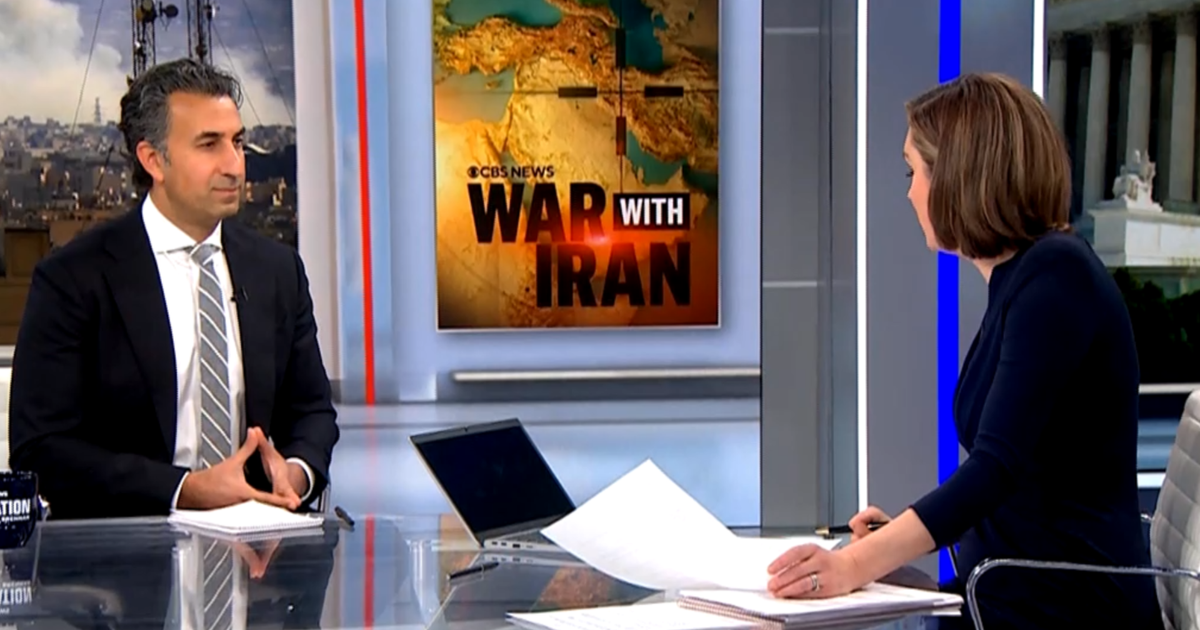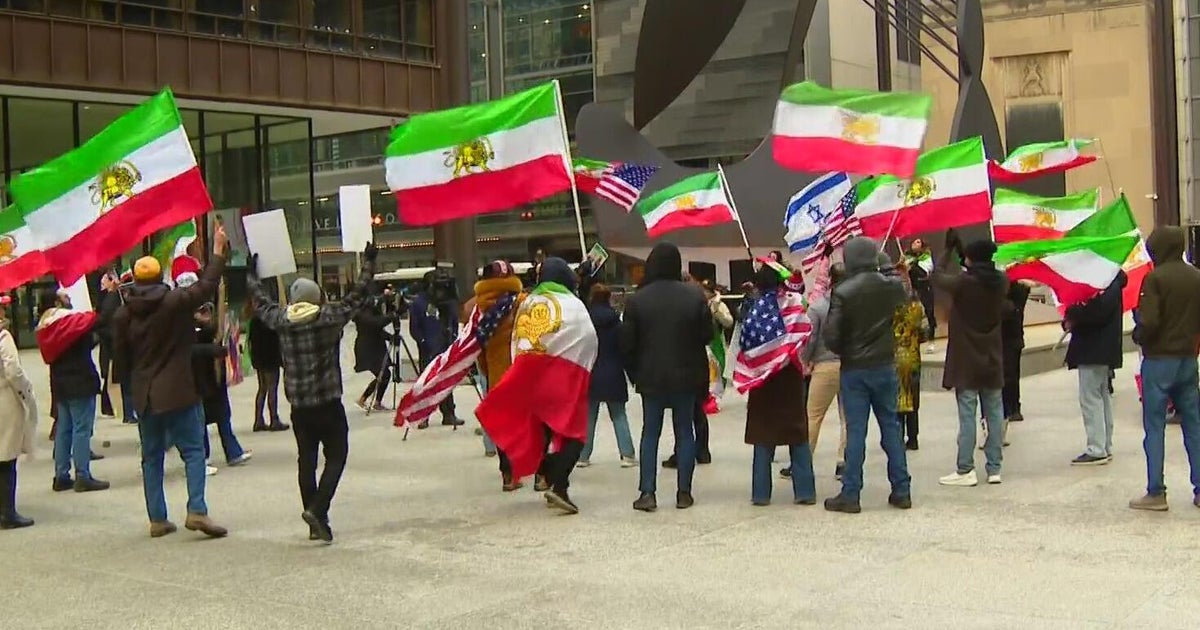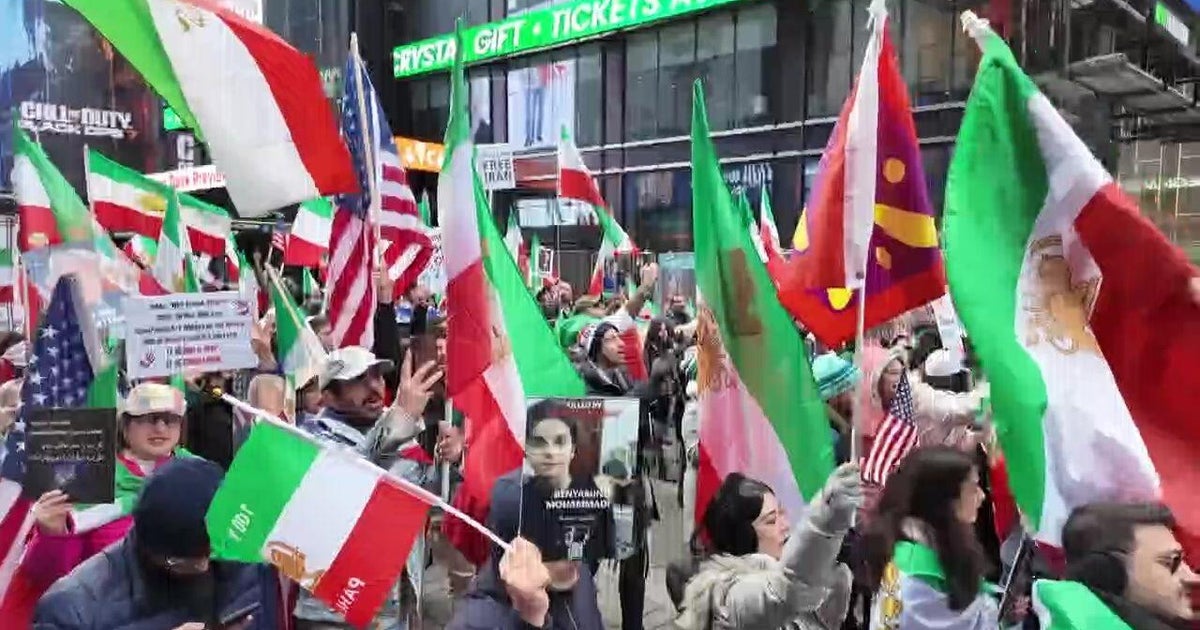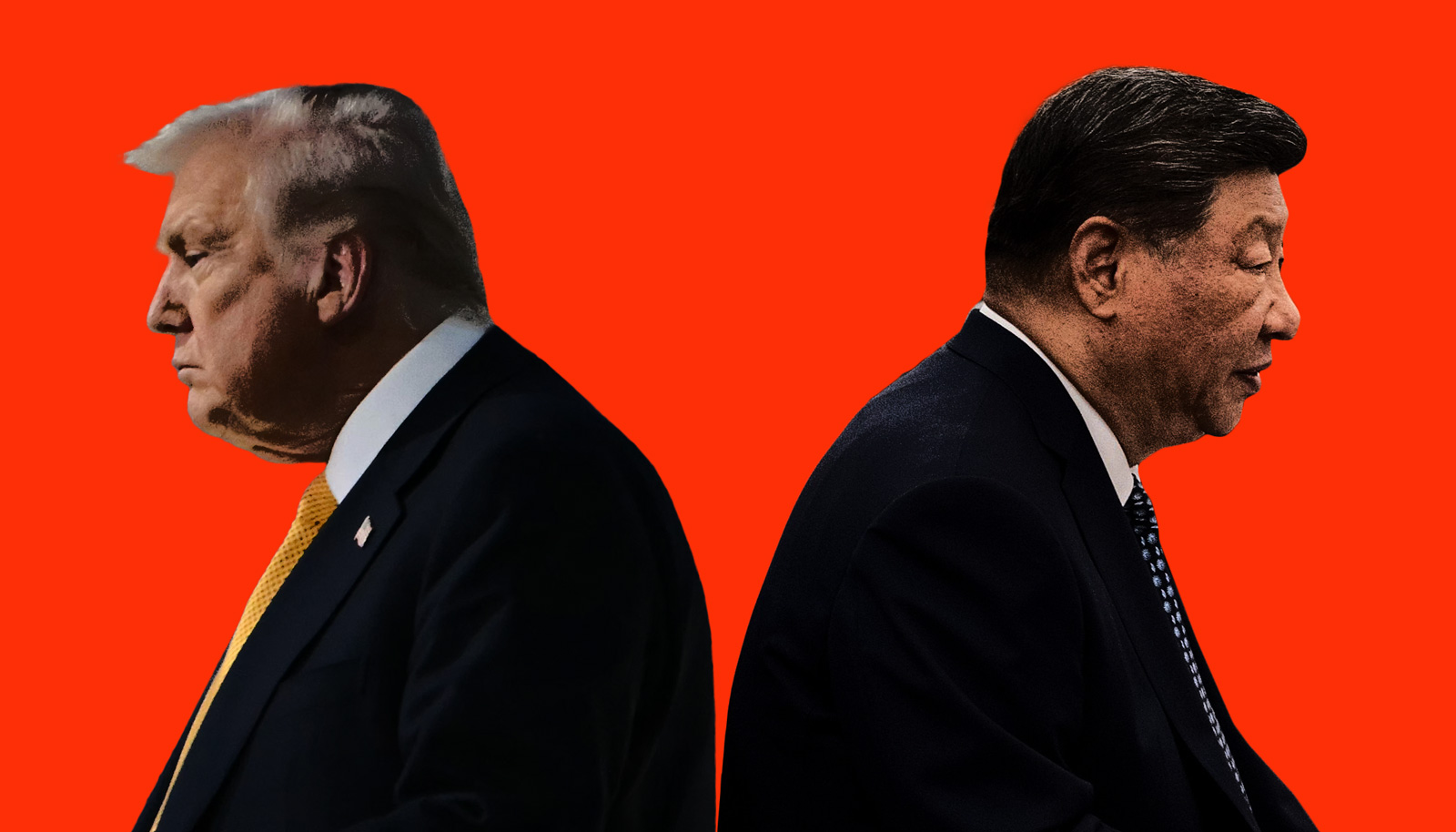Transcript: Lanhee Chen on shortfalls of the World Health Organization's coronavirus action
With the World Health Assembly convening it's annual meeting remotely next week for a special session on the coronavirus pandemic, renewed scrutiny over the World Health Organization and it's handling of the global crisis is fresh in world leaders' minds.
"Face the Nation" Moderator Margaret Brennan sat down with one of its critics, Lanhee Chen of the Hoover Institution, for some perspective on the crisis and the UN agency.
HIGHLIGHTS:
- On China's influence and impact in the WHO: "The response continues to be affected inordinately by China and what the Chinese government might want. I think a lot of people believe a lot of scientists believe that we are headed for future waves of this coronavirus. So once we're sort of done with this wave, maybe we'll have another one in the fall and winter. And the problem is, if the World Health Organization is compromised in some way, if it is not the most effective body for responding to these challenges, then that has to be ferreted out now, that is something that needs to be determined now as opposed to waiting for some date in the future when we may or may not have more time to examine the situation."
- On Trump's repeated criticisms: "Much of the U.S. response for the pandemic has already been funded. So in some ways, the freezing of funding is more symbolic, I think, than actual. It is a way to sort of force a response within the World Health Organization. Ultimately, I'd like to see the W-H-O become more effective. I'd like to figure out a way to reform it and to make it stronger. The problem is that that's going to be very challenging to do without some real sort of threat or some real forcing mechanism. And I think the president, Trump and the Trump administration have tried to move in that direction."
- On xenophobia in the era of coronavirus: "From my own perspective, I think it's entirely fair to be critical of what the Chinese government has done. It's entirely a fair critique to say that China, in many ways, whether in the current crisis or other issues we've had with them, human rights, etc., that the Chinese government, there's good reason to criticize them. How do you separate that from the need, for example, to say, look, that doesn't mean that we should go and categorize all people of Chinese descent in the United States as somehow affiliated with or part of China. There's a real danger there."
MARGARET BRENNAN: Next week, the World Health Assembly will hold its annual meeting and there is a special focus on the pandemic. Now, the W.H A is the decision making body that oversees the World Health Organization. The W-H-O. And there has been a lot of criticism over how that U.N. agency has responded to this global health crisis.
One of the criticisms is that it is overly influenced by one of its members, China. The United States remains the main financial contributor, although the Trump administration has said it wants to freeze funding because of some of these problems. Lahnee Chen has been a critic. He is a member of the Hoover Institution, a Republican policy adviser and a friend to Face the Nation. Lanhee, it's good to talk to you.
LANHEE CHEN: Thank you, Margaret.
MARGARET BRENNAN: So given that this is a global pandemic and anywhere this virus exists means it's a threat to Americans since there's no vaccine. Don't we need a World Health Organization now more than ever?
LANHEE CHEN: I guess what I would say, Margaret, is we need a functioning World Health Organization. We need a World Health Organization that is consistent with its charter, which is to promote public health around the world and to deal with some of these transnational challenges like this coronavirus crisis. The difficulty, though, I think, is in their response to this coronavirus. The World Health Organization has demonstrated ways in which it has been ineffective or worse yet captured by the Chinese Communist Party and interests of China, as opposed to thinking about the interests of public health more broadly. And so I think we have to ask whether this organization at this time is functioning in the way that we want it. And I think we're right to push for reform. The question is going to be, is that reform, for example, making the World Health Organization more accountable? Is that's something that's going to happen now or is it going to be the context of after this pandemic is passed?
MARGARET BRENNAN: And that timing is a key difference when it comes to some of America's allies. The U.K., Germany have said there does need to be a review, but let's worry about that after we get past this period of mass death that there a more immediate crisis. Australia, however, has said they do want an inquiry now, as does the United States. Why does that matter? Why does the now part matter?
LANHEE CHEN: Well, I think it matters insofar as the response continues to be affected inordinately by China and what the Chinese government might want. I think a lot of people believe a lot of scientists believe that we are headed for future waves of this coronavirus. So once we're sort of done with this wave, maybe we'll have another one in the fall and winter. And the problem is, if the World Health Organization is compromised in some way, if it is not the most effective body for responding to these challenges, then that has to be ferreted out now, that is something that needs to be determined now as opposed to waiting for some date in the future when we may or may not have more time to examine the situation.
So I think precisely because the World Health Organization is in the middle of the pandemic response, this is exactly the right time for us to be assessing the efficacy of the organisation and ways to improve upon it as it seeks to respond to the crisis.
MARGARET BRENNAN: Do you support the freezing of U.S. taxpayers money?
LANHEE CHEN: I think that it is one of the ways to get the World Health Organization's attention. I've said before that if you look at the amount of money that's being devoted by the WHO to pandemic response, it is an extremely small percentage of what it spends overall. And in fact, much of the US response for the pandemic has already been funded. So in some ways, the freezing of funding is more symbolic, I think, than actual. It is a way to sort of force a response within the World Health Organization. Ultimately, I'd like to see the W-H-O become more effective. I'd like to figure out a way to reform it and to make it stronger. The problem is that that's going to be very challenging to do without some real sort of threat or some real forcing mechanism. And I think the president, Trump and the Trump administration have tried to move in that direction
MARGARET BRENNAN: So that the chief criticism is that the World Health Organization wasn't raising, you know, louder concerns earlier on and that the human to human transmission part of the equation -- the thing that makes this so deadly, was not shared. The other side of that is: this is a U.N. organization. They are influenced by their members. They are constrained by that. And they can't force anyone to do anything, in any country. That's just the way these organizations function. So is this just in some ways a domestic political dispute being overlaid on a bureaucratic organization that already had these issues?
LANHEE CHEN: in some ways the WHO is going to be beholden to its member countries. The question in this situation is twofold. One, why is it that they were so beholden to China as opposed to other members? And you've already noted the US is the largest contributor to the WHO. Why not consider the different perspectives of countries in managing or in putting out information about what was happening in China initially with the virus? I think that's the first issue. But the second issue is history actually tells us that the show has had periods of time where it has pressed member states more directly. If you think back to the SARS epidemic, the original respiratory disease that affected Asia in the early 2000s, the WHO, under different leadership at the time was on the front lines of pressing China as to why it did not reveal information more accurately and quickly. So we know the WHL can do this. The question is why haven't they done it this time and what is different? And I would suggest its leadership, but also organizational decay - things that need to be fixed quickly.
MARGARET BRENNAN: Is your diagnosis of the problem here that it is a problem at the very top of the World Health Organization, or that it's the entire bureaucracy that's broken?
LANHEE CHEN: Well, I think that the leadership of Dr. Tedros is a significant problem. I do think that he sets the tone and every WHO director general indeed sets the tone of the organization to a certain degree. So I do think that is the principal problem. I think there are also some bureaucratic issues. For example, the way that the WHO is organized, such that regional director, it sometimes can have a significant amount of control, which takes away from the ability, for example, of the central organization to coordinate on some things. There are definitely bureaucratic issues.
MARGARET BRENNAN: it was towards the end of January that the World Health Organization issued its most alarming declaration, calling it a global public health emergency President Trump was still praising China, saying they had it very much under control.
MARGARET BRENNAN: Repeating things like this, sort of showering Chinese leadership with praise, his allies would say, well, this was to try to get what we want in terms of access, something that never actually ended up happening. But don't these public statements possibly reflect the same thing the World Health Organization was saying was based on what they were getting officially from the Chinese government at the time. They didn't know any better. I mean, did President Trump know any better when he was saying these things?
LANHEE CHEN: Well, I think that we're gonna have to discover that. Which is why some are keen to see, for example, the intelligence that President Trump was seeing, and that the Trump administration was seeing, in January how much of our information collection in the in the intelligence community was either consistent or dissonant with what the Chinese were saying? I think that is a very important piece of information that in in the after action here in the US we're gonna need to get a handle on is exactly how much the administration knew and when in terms of our response. But it is absolutely clear that the WHO has been relied on not just by the U.S., but by a number of countries around the world to provide assessments of what's going on when we're dealing with these sorts of pandemics. And so it is important for us to figure out why the WHO was so keen to shower President Xi and the Chinese government with praise for its response as well.
MARGARET BRENNAN: One of the other things that diplomats I had spoken to were pushing for prior to the present freezing funding to the World Health Organization, it was for Taiwan to be allowed, at least in an observer status, to attend these key meetings like the one that's coming up next week. Why is that such a sticking point?
LANHEE CHEN: because the government in Beijing repeatedly has tried to deny Taiwan the ability to participate in the WHO. Taiwan actually had observer status in the WHO for many years until the current administration in Taiwan - which is perceived to be more hostile to the mainland - until that administration came into office. the reason why its critics in the context of the current crisis is because Taiwan has been a model of effective response to Coronavirus. It has managed to keep the number of cases under control. It has managed to put in place a system that allows the government to understand when things might be spiraling out of control to quickly bring them back under control. So there are reasons why we might want the international community to learn from Taiwan by prohibiting Taiwan's participation in next week's World Health Assembly meeting, which, by the way, the WHO reasserted that position only yesterday, only this week. That really does raise some challenges in terms of being able to get the best information out there and seems to say the organization wants to put politics, frankly, ahead of public health.
MARGARET BRENNAN: a lot of this conversation in the U.S. right now, it gets overlaid with two things. One, a very hawkish sentiment from the secretary of state towards China, which has been there long before the pandemic. But also this sense of xenophobia that there is a domestic political benefit to blaming someone else, specifically China, and that that has other motivations for the president or some kind of dog whistle to it. How do you fit those pieces together? What do you make of that reception?
LANHEE CHEN: From my own perspective, I think it's entirely fair to be critical of what the Chinese government has done. It's entirely a fair critique to say that China, in many ways, whether in the current crisis or other issues we've had with them, human rights, et cetera, that the Chinese government, there's good reason to criticize them. How do you separate that from the need, for example, to say, look, that doesn't mean that we should go and categorize all people of Chinese descent in the United States as somehow affiliated with or part of China. There's a real danger there. I think when that line gets crossed and the problem, Margaret, is, you know, from covering politics for a long time is that line. It gets blurred. It gets there's no room for nuance in political conversation, certainly not in campaigns. So it's it's a line that I think both President Trump and Vice President Biden in this upcoming campaign, both of them talk about China as an issue. They need to be keenly aware of the fact that there is a line that once you cross that line, it will become very, very challenging for the Asian-American community in the United States.
MARGARET BRENNAN: Interesting. We'll kind of continue to track that. I want to ask you about a plan that you have laid out to try to reopen the United States and stay healthy. Your former boss, now, Senator Mitt Romney, was in a congressional hearing sharply critical of the Trump administration's ability to roll out testing in this country. He said our testing rate is nothing to celebrate whatsoever. What kind of expectation should there be on testing specifically to the plan to reopen the country?
LANHEE CHEN: Some have said, you know, you're looking at millions and millions of tests a week. Some have said more than that. Some have said less. But it is quite clear that the point that Senator Romney and others have raised is that it took us an awful long time to ramp up that testing. And as with the situation with the WHO and what they were saying about coronavirus in the same way with testing, the timing of this matter is a lot. And so the fact that we didn't have more earlier was a challenge and it did put us behind the eight ball. I think going forward, you know, I've talked, for example, about how we can get college campuses reopened against this again this fall. We're not going to be able to do that, I think, unless we've got a lot of testing available for colleges to deploy to figure out who on campus might be infected, what faculty might be infected. I think those are going to be really important questions. So testing is a big part of the picture. There's no question about it. But it's not the only thing we need to get right going forward.
MARGARET BRENNAN: And we spoke to the president of UVA about that on Sunday show and he described the same thing. It's basically planning for a small city. You're out there at Stanford. I mean, testing, contact tracing, all the things you've put in place for a city you need to put in place for a university, right?
LANHEE CHEN: Contact tracing is going to be important, good, effective communication so you can let people know when they may have been exposed. Figure out a way to communicate things to the student body. There's also the unique challenge in the college setting of the residential problem, which is you've got a bunch of people that live in very close proximity. How do you deal with that? How do you deal with older faculty members and how they might be disproportionately affected if they come into contact with it. So these questions that affect colleges and universities, they affect K through 12 schools.



